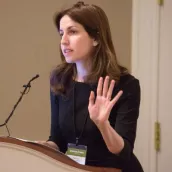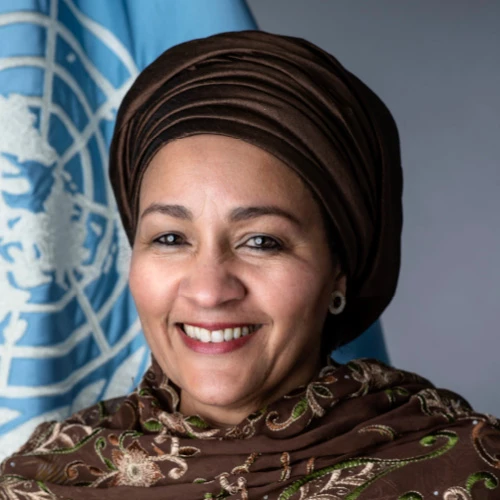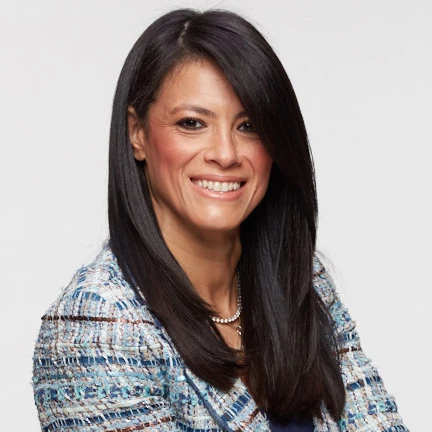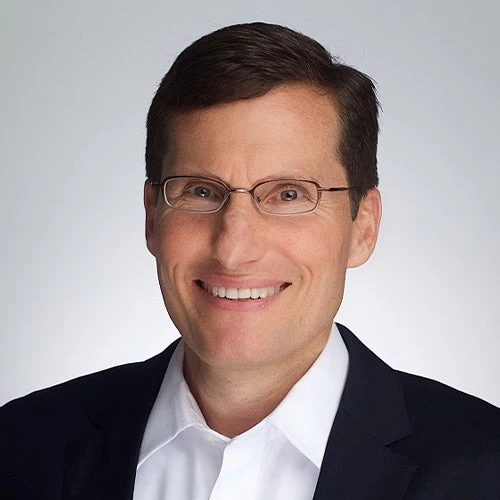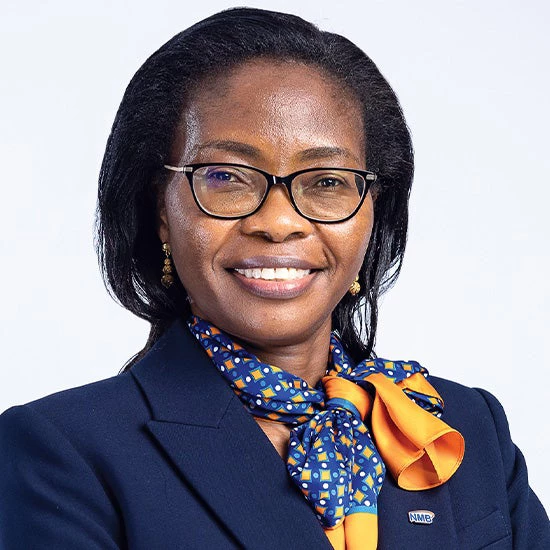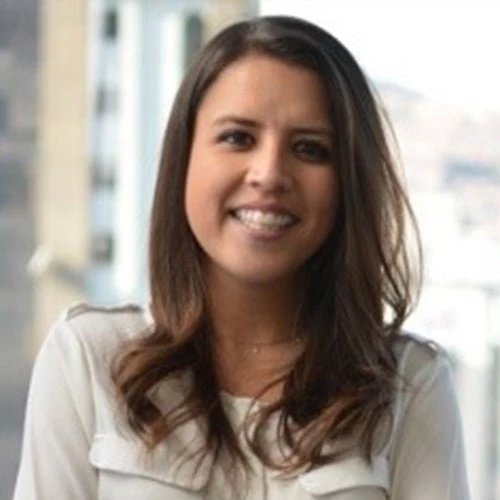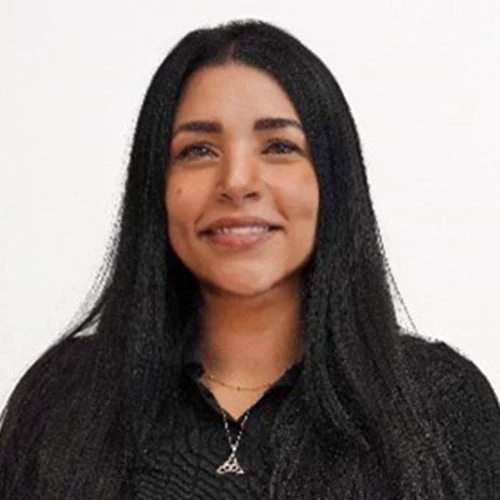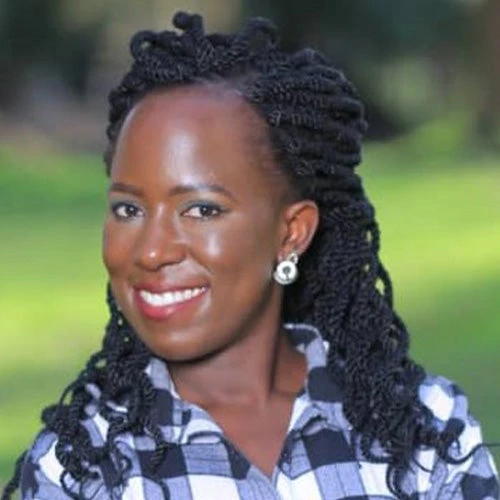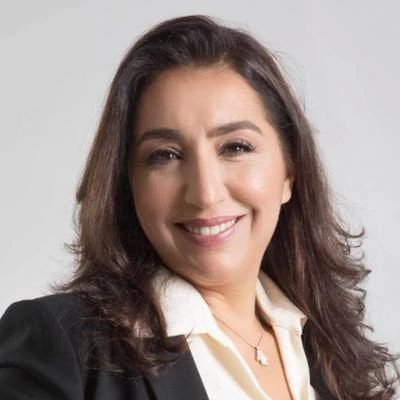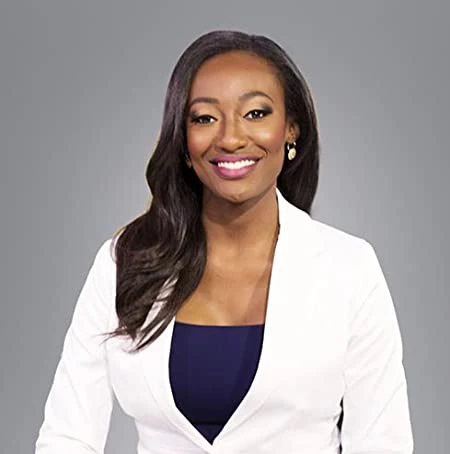[Rachelle Akuffo] Hello and welcome to the 2023 Annual Meetings of the World Bank Group and IMF. I'm Rachelle Akuffo, anchor for Yahoo Finance, and we are live here from Marrakesh, Morocco. Before we start, I want to acknowledge the devastating earthquake that took place in Morocco last month. At this very difficult time, we are here to stand by Morocco and its people. Over the next 90 minutes, we'll be discussing how to engage women as leaders and the role of innovation, financing and collective action in accelerating gender equality. You can share your thoughts on this topic anytime using the hashtag #WBmeetings. Of course, please send us your questions either online at worldbank.org or in person, using the QR codes that you see displayed in the chairs in front of you. Our event features two distinguished and inspiring panels. In the first panel, we'll hear from policymakers on why women's leadership is so important in a time of overlapping crises. And then in the second panel, we'll hear from the private sector and civil society leaders on the specific solutions they're developing to empower women. Let's dive right into the first conversation. Please. join me now in welcoming our panel. Miss Anna Bjerde, World Bank Managing Director for Operations. Miss Amina Mohammed, Deputy Secretary-General of the United Nations. Her Excellency, Rania Al-Mashat, Minister of International Cooperation of the Arab Republic of Egypt. A welcome to you all. Thank you so much. [Audience applauds] So, Anna, we will kick things off with you. As we know, the World Bank has an ambitious mission to end poverty on a livable planet. Can you tell us how the Bank is placing gender equality in its mission and strategy?
[Anna Bjerde] Great. Thank you so much. And wonderful to be here and wonderful to be here together with Amina and Rania. I'm just so delighted. Yes, absolutely. We have a new vision, which is to end poverty on a livable planet. If you think about that planet, 50% of that planet is represented by women. Yet, these 50% are not having the same opportunity as the other 50%. We think about this very much through the lens of equality. Why it matters is because it is, for us, a fundamental moral question, frankly, but it's also an economic and social development question. Just to give you a little bit of a sense, why do I say that? That is because gender gaps in economic development impose a huge economic and social cost. I just want to mention two numbers that really stay with me just to kind of focus us and center us for a moment. Globally, GDP per capita could be 20% higher if women employment were at the same rate of men's. 20% higher. Imagine today in a time when we're looking at a decade ahead of us of such slow growth, we could make such a difference. And get this one, this number I also think about so often, economic gains could be five to six trillion more if women started and scaled businesses at the same rate as men did. And let me not stop there. Women, when they are represented as leaders in communities, in policies, in businesses, we know we have a better outcome on resource management, we have better environmental stewardship, and perhaps most importantly, we see a marked correlation between the prosperity of today's generation and next generation because of the decisions that women make today. For us, it's absolutely instrumental that we put women at the center of our new vision and in how we step up and do development going forward.
[Rachelle Akuffo] It must be frustrating when you hear these numbers and the difference it could really make if more women had the sort of investment and the sort of access to opportunities. I want to turn to Her Excellency, Rania Al-Mashat. Minister Al-Mashat, the world is undergoing major changes in response to crisis as well as innovation. With that in mind, that also includes digital transformation and green transitions as well, what is Egypt doing to empower women, youth and other marginalized groups to drive positive change as leaders, innovators and entrepreneurs? If you could give us two or three examples.
[Rania Al-Mashat] Thank you very much. First, let me also say that I'm extremely delighted and honored to be on this panel with one of the key figures pushing the agenda on SDGs and women forward, Amina Mohammed and of course, my dear colleague Anna as well from the World Bank. Before I speak about that particular aspect, let me say that women's participation in the economy is macro-critical. This point about macro-critical means that it's no longer just a statistic that we're trying to improve, but it has become fundamental in national programs, because if we are able and the quantification on a global scale was just mentioned, also a quantification on a national scale is mentioned. In Egypt, if we have parity, our GDP grows by 34% more. That's a huge number. That means there is economic gains not just for women, but for the whole economy. We are able to unleash a lot of potential. When you talk about digitization, entrepreneurship and female participation on all of this, programs related to financial inclusion become extremely, extremely important. In the country in 2015, there was a gender strategy that was launched. It looked at the economic, social and political aspects related to gender participation. This was extremely important and with the central bank, a lot of work on financial inclusion because through that you are able to create entrepreneurship, ecosystem. You are also able to create more engagement on the SMEs where women come very much in the center. Climate. As part of the dialogue on climate action, particularly adaptation, it has been shown that in countries where there are adaptation issues, if women take the lead, then definitely there's going to be gains because they are in the communities themselves. In our case, we have also put together a climate/gender agenda. This was launched several years ago. As we are pushing forward as presidents of COP27 in Sharm el-Sheikh, several initiatives related to gender and climate action, very, very important. Pinpointed with targets that just not applied for Egypt but in the continent, and also learnings with South-South cooperation as well. As Minister of International Cooperation, we work with all partners, World Bank, bilaterals, and of course, with the United Nations being the biggest multilateral institution. Most of the programs that we do are driven from strategies. Each of the strategies we have with our development partners, inclusive economy comes into play. Inclusive here means women and youth. This is, again, an overriding objective, and then it's translated into different projects and programs with our development partners. Finally, there is a lot of synergy across the programs. Here, government involvement becomes important to create complementarity between what the World Bank is doing, what the UN is doing within the country, within our national borders, so that we are able to leverage the comparative advantage of each of our partners to be able to meet our national goals.
[Rachelle Akuffo] You raise some important points there, not just on the collaborative side, but having this inclusion as macro-critical. When you look at things through that lens, it really does change the narrative. Miss Mohammed, I want to bring you in here. As the UN Deputy Secretary General, can you tell us how far we are from SDG number five, which is gender equality, and what are the main challenges that we still face to gender equality? And also, what should make us hopeful?
[Amina J. Mohammed] Okay, three and one. Thank you very much. And great to be with two amazing women who are walking the talk. It's not easy to do that in the spaces, even when we get them to lead. We're not doing very well. We met in New York as a global community to assess halfway through where we were with the SDGs overall. Goal five, the gender goal, was always going to be the one that we got for sure. We just didn't know the ambition. Having got it, we called it our docking station. Whatever we did in the investments in women on the other 16 goals had to matter for goal five. Sadly, the targets that we have, over 140 of them, only 15% met. We went in very sober that we had in fact, regressed. In some places, we were flatlining. We were not making the progress at all. Worse still, we didn't have the data to tell us in many cases where we're at. At country level, we had an aggregate and that really just masked where the real issues were for gender, whether it was school or access to SRSH and our issues around equal pay, all of these we are off track. But we did go in there knowing that we had the solutions and that clearly the means of implementation had been a barrier and women are often the first to fall off that radar when we talk about investing in agriculture, investing in the energy transition. It's almost as though you are invisible. Here, very specifically, we saw where we were not and know where we need to be. Therefore, as we look at raising the resources for it, we can be very specific about those areas. I think here, with the energy transition really important, this will be about green transitions, there will be green jobs. It's an opportunity to bridge the gap that we have as we do things differently. It is the same as for the digital divide, and we speak to education. We know how far behind we could be if we're not all connected. This is a place that we need to be because we are not. We are almost invisible. When you come to the question of what gives us hope, is that governments are doing much more than they did eight years ago in recognizing that gender is an issue and that they've got the strategies, but often it is the means of implementation. It is the debt crisis that many are facing today. It is the exacerbation of that lack of being able to recover from COVID-19 or perhaps the cost-of-living crisis that we see as a result of the war in Ukraine. Hope is that we can resolve this. We're here in Marrakesh because there is a reform agenda that we've all said we can do with the means of implementation. The SDG stimulus we put in front of everyone to say that this can happen with what you have existing. When you talk about the prosperity and the ending poverty and a livable planet, all of this gives us hope because we know exactly where women need to be in that and the kind of investments that need to happen. I think that we're working better across institutions with government, recognizing that this work has to be done at the country level. This is not going to be 40,000 feet up. I think we've got the policies, we've got the tools, the frameworks, now we really have to help countries to get to where they need to be.
[Rachelle Akuffo] With that in mind, then, Anna, I want to bring you back in here. Because if we do approach things not just from that high 40,000-foot view, but also at the country level, share your perspectives then on the power of innovation, financing or collective action to drive change, and give us a few examples of what the Bank is doing in these aspects.
[Anna Bjerde] Yeah, absolutely, but since I'm in the mood of shocking people a bit with numbers today, I want to mention two more things which again should wake us up, if they haven't already. One is according to the World Economic Forum Global Gender Gap Report, at the current rate of today, it will take us 131 years to close gender gaps. Just a reminder, before COVID-19 we estimated it was 100. What happened? Women are harder hit by crises than men are. Just a reminder that in a few years, we set off a huge increase in the years that it will take. This is absolutely fundamental. The second thing is we published something called Women Business and the Law, and I hope if you're not already following it, I actually think it's quite insightful. It finds that only 14 countries, 14 around the world, have laws that give women the full same rights as it gives men. 14 countries. As my colleagues say, we have a lot we can work on, but we also have a long way to go. But hope there is, because this year we have two Nobel Prize winners who I think we should actually mark here today. [Audience applauds] We have Narges Mohammadi, we all know, who is getting the Nobel Peace Prize honored for her fight against the oppression of women in Iran. A reminder that we don't take oppression anywhere. Not in Iran, not anywhere. The second person, of course, is Claudia Goldin, who is getting the Nobel Prize in Economics. Harvard professor honored for research on gender gaps in the labor market and how to narrow it. I find that the recognition of these two women is also so inspirational for why we need to keep this fight going. But now let me answer your question. What are we doing? It goes back to the evolution roadmap at the World Bank and what we're trying to do to change, and we're really trying to get to scale. There are three ways that we're finding through our work that we need to focus on and we need to do differently. The first one is we really need to take advantage of the evidence we're getting of how to reach women and reach the women equality and close that gap. We instituted some years ago an innovative little pilot project in one region called Gender Labs. This has now spread to many, many more regions, and it's giving us the evidence of what type of interventions help to get to scale. That's number one. The second one is to really link the research work we do to operations. I'll be very honest with you, I find it often easier to have a research or have a report than it is to do the operation. I'm pushing hard in the World Bank that we take our research to our operational front because it's not enough to have a good report. We have to have action on the ground. The last one is to influence high level reforms and policy dialogues. This is where I'm very encouraged to see so many now really infused by this innovation that we need to be out there talking at all levels with stakeholders about the importance and the cost of not closing this gap, because it's real, it's economic, it's social, and I have to say again, it's moral. We're really trying to really go to scale. That is the biggest innovation, I think, that we can bring at this point, because that's what's needed.
[Rachelle Akuffo] Minister, I know we got some signs of hope here from our other two panelists. If you could leave us with your final thought on what's giving you hope, especially when you look at the gap that Miss Bjerde was just talking about as to where we are with gender equality.
[Rania Al-Mashat] If we're going to look at the gap and say that's going to hold us back, we won't be able to overcome it. I think it's actually a motivation. The second point is the quantification of all of this, even though there's so many numbers out there, but they're very important in the policy dialogue, not just the policy dialogue across government. Remember that gender is a cross cutting theme. If you're talking about transportation, gender comes in. If you're talking about energy transition, gender comes in. It's a cross cutting theme, and therefore all of these statistics and numbers are so important in the policy dialogue within government, and then they create a very important platform for our engagements with the rest of the world. Today, there's not a single, for example, if we're talking about the private sector that needs to come and invest in a country, unless there are certain ESG benchmarks related to gender, then it's going to be very difficult to compete as a country with respect to other countries in order to attract investment. I believe that the convergence of views on how to address many of these issues is very important. It's becoming more mainstream and it's not taken, as I mentioned, just as a nice number that we want to close. It has economic implications, which makes the global goals achievable, and the global goals go beyond what we want to do in our country specifically, and then each country trying to address its national goals is contributing to the global goals, and then we all have to report back on the SDG matrix, which we do with a lot of determination, but also with a lot of pleasure, because it does humanize this concept of people planet. It's not just very big slogans, it actually, at the end of the day, comes to the rural areas, comes to the young girls, comes to the violence against women, adolescents, et cetera, et cetera. I just want to mention one program that we have in Egypt, Haya Karima Decent Life, which goes to 4500 villages. It's not just about infrastructure development, it's human capital infrastructure as well. The only way to do that is by creating more jobs for women, financial inclusion, and also for the youth.
[Rachelle Akuffo] Appreciate all of your commentary this afternoon. I hope you're all feeling motivated by what you've heard here to take this call to action. A big thank you to our guests for joining us to discuss the importance of accelerating gender equality. You certainly are the embodiment of women's leadership, and we appreciate your insights. Thank you very much. [Audience applauds] Before moving on to our next panel, I'd like to introduce two very special guests. They are women entrepreneurs supported by We-Fi, and they traveled from Jordan and Bolivia to share with us their personal journeys as leaders and as entrepreneurs. Let's welcome our first Ignite speaker, Hanan Shahin, Co-founder and CEO of Bloomcart. [audience applauds]
[Hanan Shahin] Hello, everyone, or Marhaba, as we say it in Arabic. My name is Hanan Shahin. I'm the Co-founder and CEO of Bloomcart. MENA’s first try before you buy software. I'm a Jordanian, by the way. For some reason, ever since I was a child, I knew that education is the key to security and success. Later on, I studied architectural engineering, and I thought my future was set. But I had a nice experience for 13 years to experience something other than architecture. But architecture sharpened my mindset and logic. Ironically, not as an engineer in an office, but as an entrepreneur developing other industries, like ecommerce. For the past 13 years, I sharpened my tools. I worked as an employee, a freelancer, and I even founded my own business in 2014, MENA’s first ecofriendly event planning startup. But I found my true calling during the most unusual time, the Pandemic. The Pandemic, as horrific as it was, also gave me a business idea. People were no longer going to stores to shop for items anymore, and I saw an opportunity to help small clothing businesses sell remotely. Now, when it comes to clothes, we know that people have to try before they do the buy. And the challenge was, how are we going to do the try in a market where 80% of shoppers pay in cash rather than credit cards and where there is no infrastructure for easy returns? It turned out to be simple. We brought fitting rooms home to them. This is when we created Bloomcart, the try before you buy business. We created a fully automated try before you buy software. But people were not familiar with that. We had another idea of finding something they are actually familiar with, which turned out to be WhatsApp. Then we integrated our software to that. We set up a calendar for people to book their trial appointments. This is how shoppers are able to have their in-house fitting room experience through WhatsApp. We then deliver the items, they try them out, and they only pay for what they decide to keep. For logistics, we worked with freelance drivers. Does it sound intensive? Yes. Is it successful? Also, yes. After two years of intensive hard work, we are now onboarding merchants. We have just started finally generating revenues, and we have also started generating recognition. We won a grant by the Queen Rania Entrepreneurship Awards. We then raised an angel round. In 2022, Bloomcart was selected as one of the fastest growing companies in the world by Founder Institute Silicon Valley. We then raised an investment round from Flat6Labs and Loyal VC in Canada. Bloomcart was also a finalist at the IFC She WINS Arabia in Dubai. But I must say, expanding to the MENA market is not an easy job. It's not like the North American market or the European one. We don't have one format that fits all MENA countries. Each country has its own specifications when it comes to language, shipping, returns, payments, regulations, and even the level of digital penetration to commerce. These are all challenges we face expanding our business. But they are also opportunities. They also great opportunities for us and gaps we can fill. I have my own challenge on a personal level. Most women I know will have to choose between having a family and a career. I consider myself one of the lucky ones who managed to do both. I have these two beautiful boys and I am building my business. But I must say, I couldn't have done it without the full support from my husband on the home front. To any of you familiar with the Middle Eastern culture, you will know that his attitude is very unusual and rare. To all policymakers listening to this today, there are important things you can do so that no woman will have to choose again between having a family and a career. You can help create childcare support systems that actually work for both parents. They say it takes a village to raise a child, and yes, of course it does. So please, please don't leave it all to women. Thank you. [Audience applauds]
[Rachelle Akuffo] Thank you so much. Thank you, Hanan, for your sharing your story with us. Indeed, it does take a village to make sure that women entrepreneurs are supported with the financing and the tools they need to succeed. Of course, good luck to you and your business. Hopefully, women won't have to keep making that choice. Now, I want to welcome our second Ignite speaker from Bolivia, Miss Valeria Diaz, Co-founder and CEO of Munay, a social fintech company based in Bolivia that's working on getting financing on the hands of women entrepreneurs. Welcome, Valeria. [Audience applauds]
[Valeria Diaz Romero Urdininea] Thank you very much. Good afternoon, ladies and gentlemen. My name is Valeria Diaz Romero. I am from Bolivia. I am the CEO and co-founder of Munay, a social fintech that aims to empower women entrepreneurs. I'm here today thanks to the We-Fi that supports the We Exchange Latin American competition. Munay was recognized as one of the top 15 startups in Latin America. But today, I don't just represent myself. I'm here as a symbol for every woman in this room and women everywhere. I am here to tell you my story. I am told my story started even before I was born. My parents couldn't have kids. They were told by doctors they couldn't. However, after five years, I came along. I beat the odds right from the beginning. I was a rebel before I was born. I guess I lived up to that reputation. I have never accepted the status quo, even though I was growing up in a society that has traditionally valued men higher than women. From an early age, I volunteered in different projects. I was assisting in a nursing home. I helped building houses in rural areas. I have also worked in various projects in the United Nations in Bolivia. However, my education was in business administration. How was I going to bring these two worlds together? I think my true calling revealed itself in 2018. I used my holidays to volunteer in Africa. I spent a month on a women's empowerment project with girls that had violent or drug addicted parents. That volunteer experience literally changed my life. From that point on, I was certain of my path. I wanted to help women and the fates were with me. I applied for and I got an all-inclusive scholarship to study abroad. I did a master's in Management and Leadership in Switzerland. Not only was I able to study, I met like-minded people from Bolivia. We decided to create Munay, a startup for women. Munay is a social fintech that aims to financially empower women entrepreneurs. These are women who dream of becoming economically independent, making their businesses sustainable over time. Many Latin American women start their businesses as an alternative to stop being exposed to situations of violence, dependence and exclusion. We all know here that starting a business is difficult. But it is even more so for women. We lack technical skills and financial resources to even begin that journey. Just look at Latin America, where 82% of women that start their businesses do it with their personal savings. They cannot get access to credits because of all the requirements of traditional banking. We also feel totally alone during our entrepreneurial journey. That's where Munay comes in. Munay is built on three pillars gender sensitive financial product, access to relevant business knowledge, and access to a supportive community. With these three pillars, we provide support to women entrepreneurs throughout their entrepreneurial journey. In the last two years, we have supported more than 500 ventures led by women. That's around 1500 people in total. We have disbursed more than 55,000 dollars. That came to about 250 dollars per person. It doesn't sound like a lot of money, does it? You cannot even imagine how important this amount of money can be for them. We also provided more than 1600 hours of training sessions. Of course, we know we're just a tiny part of the solution. What women entrepreneurs need today are opportunities. We need institutions to see women as strategic partners. It means stop seeing aspiring women in financial terms only, look at them through a different lens. It means to assess the whole person, their dreams, their hopes and their commitment to their ventures. Look at women as strategic partners. What if we could unlock doors to even greater opportunities for women? Imagine the untapped prosperity that awaits us if we unite reshaping our world. Thank you very much. [Audience applauds]
[Rachelle Akuffo] And thank you too, Valeria, and thank you to Hanan again for sharing your inspiring stories and for continuing to beat the odds. I just want to remind you that throughout the program you can share your thoughts online using the hashtag #WBmeetings and you can submit your questions online at worldbank.org. Before diving into our next panel discussion, let's take a look at a brief video that highlights the importance of accelerating gender equality. [Video speaker] Gender equality is an urgent priority. It is both a fundamental human right and essential for global development. Removing barriers to gender equality can unlock economic productivity, reduce poverty, deepen social cohesion, and enhance well-being for current and future generations. Yet achieving gender equality is challenging and complex and requires collective action. The world is experiencing an unprecedented set of crises, pandemics, economic downturns, climate change, conflict, all of which have greater negative impact on women, girls, sexual and gender minorities, and marginalized groups. We have the power to change this. That is why we are taking bold action to end gender-based violence, elevate human capital, expand and enable women's economic opportunities, including through access to services like childcare, and engage more women as leaders. Studies estimate economic gains of five to six trillion dollars. If women started and scaled new businesses at the same rate that men do, closing employment gaps between women and men could yield as much as a 20% increase in GDP per capita. No country, community or economy can achieve its potential or meet the challenges of the 21st century without the full and equal participation of everyone. Join us as we work to accelerate gender equality to create a more peaceful, prosperous and livable world for all. [Audience applauds]
[Rachelle Akuffo] Now, let's turn to private sector and civil society leaders on some of the most innovative programs that put more financing and resources in the hands of women. Joining us now on this panel, Miss Leïla Doukali, National President of the Association of Women Business Leaders of Morocco. Miss Ruth Zaipuna, CEO of NMB Bank. Mr. Andrew Torre, Regional President for Central and Eastern Europe, the Middle East and Africa at Visa, and Miss Faith Lumonya, Economic Justice and Climate Action Lead at Akina Mama wa, Africa. Welcome to you all. Thank you so much. [Audience applauds] So, Leïla, I want to first kick things off with you. Talk us through how AFEM supports women entrepreneurs and what examples, give us a few that you can share about how associations like yours really harness their collective action to foster innovation.
[Leïla Doukali] Thank you so much, Rachelle. I'm so glad to be part of this panel. Thank you for your invitation. The Moroccan Women Business Association, AFEM, has been working for 23 years now to encourage business creation by women and to help women entrepreneurs seek more growth. Our association roadmap for the next three years takes into account an exhaustive and underground inventory of the situation of female entrepreneurship in Morocco. Morocco for Women has tremendous potential because more than half of university seats are occupied by young girls. We have one of the highest rates of female engineers in the world, which we subsequently lose for societal reasons. This, therefore; results in a business creation rate that is too low compared to the potential. The last study from the World Bank said comparing to the potential of Morocco we should be at 35% or 40% of employment rates. We are now around 20%, and for creation by business women is only around 10%, which is very low. We work, all of us at AFEM, on a daily basis to be as close as possible to this population through our regional representations to encourage them to be active in the economic development of our country. For these Moroccan women, they need to be listened to, to be reassured, to be supported because we are convinced that their personal development essentially involves the accomplishments of their dream and their financial empowerment. Due to their recurrent family and societal responsibilities, we must work closely in close collaboration with the public authorities to provide them with efficient programs that will help them to be in a position of actions and not in a posture of submission where they suffer the weight of our traditions. As part of our desire to develop public and private partnership, we are actually conducting a program with the Ministry of Industry and Trade dedicated to the development of women in industry. We have tremendous potentials in sectors such as crafts, cosmetics, agro, fashion. We want to give more visibility to both nationally or internationally and more economically to those women and we can do it. We also joined the Leadership Program led by the Ministry of Higher Education to raise awareness among students and reach out to them so that they can start thinking about maybe creating their own business. Because, as I said, half of the seats of the university are occupied with young girls, but we lose them at 25 years old because of societal reasons. We have also signed for the financing aspect because it's also a problem with the partner Bank here because we want them to facilitate the access to finance through personalized support. I said personalized, it's very hand by hand. We have to take it and to make it reinsured, otherwise she's not going through. We are launching now, I know that [Unintelligible] is here, very soon a new generation of accelerator incubator in the Casablanca-Settat region, not to mention all the action to carry out to support our members such as the Health Team, meetup, training sessions, access to a national international network, support with public authorities.
[Rachelle Akuffo] It's good that you're bringing in those examples because a lot of people are really looking for some bold direction to see some real significant change here. Ruth, I want to bring you in here because you took the pioneering decision for your bank, NMB, to be the first to issue a gender bond in Sub–Saharan Africa to finance women-led enterprises. What can you tell us about investor interest in gender inclusive instruments? Maybe you could start off by highlighting a few key ways that NMB has really been championing inclusive and sustainable growth.
[Ruth Zaipuna] First of all, thank you very much, and thank you for having me here. It is really an honor. And you are very right. I think gender bonds are a relatively new concept in sub–Saharan Africa. As you have rightly said, NMB Bank was the first in sub-Saharan Africa to issue a gender bond. This is a gender bond that is designed to support projects and businesses that promote gender equality and women empowerment. Now, at NMB, as an organization, we actually have put in place a clear strategy and commitment towards deriving gender equality and economic empowerment of women. In 2019, as part of our strategy and in partnership with IFC under the Finance to Eco Initiative, we made two commitments. First, we committed to advance workforce gender equality and gain a gender equality certification, specifically the Edge Certification, in three years. Second, we committed to drive economic empowerment of women through the creation of a unique market proposition for women. In 2020, we actually commenced the Edge Certification process and we launched the unique Women Proposition, and we called it NMB Jasiri Women Proposition. The Jasiri Women Proposition actually has two key objectives. First is to help women to achieve their economic goals through tailored banking solutions. Second, to promote commercial viability, to improve commercial viability of their businesses through financial education, study tours, product knowledge and training, but also to bring them together so that they can network, they can share experience, share successes and share opportunities. Now, fast forward three years later through hard work, commitment and disciplined execution of our strategy and agreed initiatives, last year in 2022, we became the first financial institution in Africa to be awarded the Edge Certification, and we became the first financial institution in sub-Saharan Africa to issue a gender bond. Now, back to your question. When you said, how can we address the question on investor interest in gender-inclusive instruments? I think I would say, firstly, just being the first gender bond in sub–Saharan Africa, the bond actually set a new benchmark for issuance of gender-based instruments. But now, for NMB, the remarkable successes of the bond, including an oversubscription of 197% and cross listing of this bond at the Luxembourg Stock Exchange, actually provided us with the much-needed clarity in terms of investor appetite, in terms of demography but also in terms of investor interest in gender inclusive instruments. There are three insights that we noted, and please allow me to share these. I think the first great insight that we noted the Jasiri Bond provided is the strong appetite of women in supporting empowerment initiatives. From a gender perspective, women were the largest investors in the Jasiri Bond. They actually accounted for 52% of the investors. But we also noted that despite operating in a capital market that is still at its infancy, there is a strong investor appetite from local population. In the case of the Jasiri Bond, actually 99% of the investors with almost 80% of them were local. 99% of the investors were local with 80% of them originating from outside the business city of Dar es Salaam. I think this further just highlights the fact that there is a growing investor base outside the business cities. For NMB, we were actually able to tap into this exciting market through our vast branch network of over 230 branches. But third, for institutions and foreign investors, the Jasiri Bond provided a great fit for investors who are interested in impact investing. For example, we received a $10 million investment in the bond from IFC. And for us, this was actually a true testament of investors' confidence in the Bank's vision and impact investors growing commitment in promoting socioeconomic empowerment agenda. I think I would say based on our experience, it is evident that gender bonds are an important investment option that uniquely provide a perfect win-win situation for issuers, for communities, and for the investors. Thank you. [Audience applauds]
[Rachelle Akuffo] You raised a good point about… oh, yes, about that need for really a tailored knowledge of what's needed on the ground versus sort of a broad-brush solution that perhaps might not address the needs. Andrew, I want to bring you in here because as we know, a global organization such as Visa engages with public and private sector stakeholders across multiple touch points. What are some of the systemic barriers that you see in women's access to finance and what are the opportunities to address them on a global scale?
[Andrew Torre] Thank you. I think the previous panelists did a really good job talking about the significant barriers that exist, systemic real barriers to women's economic empowerment. I won't belabor those. I want to just first of all, thank the World Bank and We-Fi for really convening us and bringing us together to have this conversation. It's incredibly important. I'm incredibly optimistic about the opportunity with the digital economy to really remove some of these structural barriers and really close these gaps folks talked about, and I'll talk about three things that we see that are important. The first one is to get access to the digital economy. The second thing is to have inclusive financial products, and the third is about public private sector partnerships. If you think about participation in the digital economy, we have barriers right there and they're gender-based barriers. According to GSMA, in the lower middle-income countries, there's a 17-percentage point gap between men that own smartphones and women. Women 17 point less than men. And on the Internet access, it's a 19-percentage point gap. And the digital economy, the bedrock of a digital economy, is a smartphone, and it is Internet access. I think this is something that governments play a really, really strong role in, in bringing up and helping support this infrastructure, that it's ubiquitous and affordable. I think it's the first thing we think about. The second thing is around inclusive financial products. Ruth talked about one. We see and then I think previously it was talked about that 1.7 trillion-dollar financing gap. One side of it is financing gap. The other side of it, if you're an optimist like me, is it's a market opportunity. We see lots of fintechs and institutions like Ruth’s, NMB, that see that as an opportunity to go out and capitalize on that. I think one of the things that I think is emblematic of what we're seeing is there are lots of fintechs coming into this space. We just recently launched a fintech accelerator program in Africa. We had over 1000 applicants for 20 something spots in our first accelerator program. What was phenomenal about this, this is across Africa, is that 50% of those applicants were focusing on women-owned, micro-small businesses, and also inclusive financial products. Over 50. The other thing that I thought was startling, in the total applicant pool, 30% of the applicants were women-owned or women-led. The cohort we picked ended up being 40%. If you think about that more broadly, you have digital fintech startups that want to go out, they want to offer these products, and when they're women-owned and led, they're also going to be more mindful of the products that women are going to want and the way they're going to market to them. That is incredibly important. I think the third thing is on the private-public sector partnerships, we work in an ecosystem. At our core, we spend a lot of time talking to governments, talking to civil societies like Leïla’s organization. One of the things that we have to support and finance women is a global platform called She's Next, which is a real spotlight on women entrepreneurs. Leïla, actually, we were just talking in the back, and she's going to be on our judging panel, I think it's next week, Leïla, right? For a cohort of women entrepreneurs in Morocco that we're going to provide mentoring, support, knowledge and funding. And we often work with governments across the continent, across the Middle East, with the SME authorities who have a real eye on this as well. In our last cohort here in Morocco, there was a company called Neoli, and what they did is they saw a real market opportunity to bring a digital marketplace to the artisans, the artisans that you'll see if you walk around Marrakesh or Fes or other areas that were really limited to selling to those who come into their store or on their stalls. During COVID-19 there was horrible economic situation for them. The woman founder of this company Neoli created a marketplace, got them all online. Now they didn't need to just reach the people that walked into the store, it was open to the world and to the globe. I think that really is the power of public and private sector partnerships, supporting women entrepreneurs. There's one women entrepreneur who created a digital marketplace that supported thousands of other entrepreneurs across cities, across Morocco.
[Rachelle Akuffo] And certainly, these are the kinds of stories that remind us that even though we do see these gaps and these barriers, there is also opportunity there. With that in mind, Faith, I want to bring you in here because we're going to talk about a different sort of barrier, one that's not systemic, but we're talking about climate change. We know that women are bearing the brunt of climate change. They're also critical in helping communities build climate resilience. In your view, what can we learn from the efforts of grassroots movements and particularly youth and women, in working towards gender equality and climate justice? Faith.
[Faith Lumonya] Thank you very much for that question, and thank you very much for inviting me. I am from the civil society, and I think there's usually reservations about engaging. But I think for me, one of the things I want to start with is acknowledging that we are operating within a world where everything has been placed in the marketplace, and so, everyone is rushing to get a profit from solving some of the challenges that we currently face. Unfortunately, those that live at the margins of society, but also, those that are disproportionately affected, are the ones that then a lot of the solutions that are being advanced so that a certain group of people can maximize a certain profit are the same people, are these same people who I'm talking about. When you think about the climate crisis and gender inequality, these are two systemic issues. They are systemic, they are a result of systemic barriers and structural barriers. Addressing them will require that we adopt structural and systemic approaches. But one of the things that we continue to see, for instance, even when it comes to the climate crisis, is that what we are getting are solutions that are merely addressing symptoms rather than addressing the causes. Even when you think about gender inequality. Again, a lot of what has been done is provide a few dollars here and there to try and support women entrepreneurs, but not addressing the structural barriers as to why they are unable to be able to grow beyond the point that they are operating. I think for me to share some of the lessons that we have learned. One of the things that we have learned as grassroots movements is that we can no longer talk about getting us to participate in spaces such as these. We can no longer talk about getting access to certain monies. We are saying let's interrogate why the money is not getting to us. We are saying why? Let's interrogate why we are not at that table when it comes to decision making. I think for me one of the things I want to do is just make four points. One is that yes, we know that the World Bank, for example, has advanced the private sector as one of those actors that can support, for instance, delivering social services, but one of the things that we have learned is that the private sector cannot deliver social services that will respond in addressing the lived realities of people. We know, for instance, that the World Bank has been investing in Kenya around the Africa medical equipment facility. But a lot of the companies, medical health facilities that have benefited from this particular project have been the larger ones of which the majority of the women in a lot of in this particular community largely rely on the smaller facilities, because the objective really of private sector is to maximize profits. We can't run away from that. These are individuals putting their money so that they get a return. We know that it's important that we bring back public sector. We need to bring back the role of the state and ensure that the state is deeply involved in providing the services that we need. The other thing I want to talk about is the fact that, again, to go back to the private sector, we know that without regulating the private sector, the private sector will operate with impunity. I'll give an example from Uganda where I come from. There is a public private partnership that was invested in by the World Bank. One of the things that we have seen is that there's been continued women and men working in precarious conditions and the company is not being held accountable because they wield a lot of power over the state and over the people. We know that the idea of deregulation is not working and particularly when it comes to issues of human rights. The private sector has distanced themselves from taking up that obligation and ensuring that they protect the rights of people, because, again, their focus is on maximizing profits. It's important. For me, the point I'm trying to emphasize here is the role of the state. And then finally, as I conclude, I'll try and tie up the two points. I know this is a World Bank space, but we know that the World Bank works closely with the IMF. I think one of those very painful experiences that we have had is the impact of austerity measures in our countries, our governments, because of austerity measures imposed on them by the IMF and the World Bank, because there are loan conditionalities. We are now in a situation where our key social sectors like health, like education, are underfunded, and what is being funded is sectors like industry, which are essential, but I think it's important for us to really center people and center the lives of those that are at the margins. Financing health, financing education must be the role of the state. It's important that there are all the gaps that are being put in place to limit their active involvement in financing development in these sectors are removed.
[Rachelle Akuffo] Faith, important to get that civil society aspect in there, absolutely. I do want to do a quick fire round here for all of our panelists here. We heard from Anna and the ministers earlier that it takes leadership and innovation to really move the needle on gender equality. We need to act with a sense of urgency. I'm going to ask each of you to name one top priority that you believe either your organization or the broader policy community must focus on in the next twelve months. Leïla, let’s start with you.
[Leïla Doukali] Yeah, Rachelle, if I may, I have two, please. The first is the establishment of the Turnkey Industrial program dedicated to women, of which we will include innovation. We were supposed to talk about innovation, we didn't have time for it.
[Rachelle Akuffo] It's included in here.
[Leïla Doukali] Okay. And the second is to convince young women currently being finalized of their higher education curriculum to be an actor of the economic development of our kingdom.
[Rachelle Akuffo] And Ruth, in terms of your top priority that either you or your organization or the broader policy community really should focus on with a sense of urgency in the next twelve months.
[Ruth Zaipuna] Thank you very much. I think for NMB Bank, the key priority and focus for us is, and it will continue to be financial inclusion. Why? Because financial inclusion and the whole aspect of access to finance, I think they continue to be key factors when it comes to the women economic empowerment agenda. I think Tanzania, for example, in our country, we are making good strides already when it comes to financial inclusion. Financial inclusion in Tanzania now has increased from 65% in 2017 to 76% in 2023. However, only 22% of Tanzanians use banking services. For us, as a bank, financial inclusion will continue to be key. We will continue to accelerate our efforts to ensure that we bring more Tanzanians into the formal banking sector. We are already making big progress already. Last year in 2022, we opened almost one million new customer accounts. This year we have plans to open 1.2 million customer accounts, and we are making progress already. We are actually opening more than 5000 new customer accounts on a daily basis. We will continue to invest in digital technologies. We will continue to invest in agents banking because these are the services that will actually ensure that we reach all Tanzanians, even in rural areas.
[Rachelle Akuffo] And Andrew, your top priority?
[Andrew Torres] Sure, I'll step it up a level and just say I think more broadly, the private sector, if the private sector is serious about things, they have strategies for it, they have business goals for it, and they hold the business accountable. Businesses have strategies around what they offer, but now we've also heard in the previous panel around climate change. I think if we're going to get serious, we ought to have a women's economic empowerment strategy. We ought to have real initiatives behind it, and we ought to drive it with our frontline teams, the businesses. It's worked really, really well for us. I was talking about She's Next and the other things. But you need to back it at the institutional level and make sure your teams know it is a priority.
[Rachelle Akuffo] And Faith, your priority over the next twelve months?
[Faith Lumonya] I think for me, the priority should be restructuring the global economic architecture. I use the word restructuring because it's not reforming. What we need is an overhaul of the current system, the current system that is managed by the IMF, by the World Bank, by the UN, by the World Trade Organization, because what we currently have is a group of institutions that are gatekeeping economic oppression. What we need is a restructuring of our system to center those at the margins of this global world that we live in and not be driven by the decisions of the rich. I think for me, one of the other things I want to see democratizing as part of the restructuring process, is to democratize. Because when we talk about women's leadership, and from an African perspective, when you think about the representation of our countries within the IMF, within the World Bank, for example, we only have two people representing 46 countries from the sub-Saharan Africa, while the US and the different European countries have representation for each of their countries. The system is unfair and it's flawed. It's important because if we are talking about women's leadership, we know how patriarchal the African society is. That is already a limitation in as far as when women will be able to actually lead on behalf of sub-Saharan Africa or Africa. For me, what we need is a complete overhaul of the current system and a restructuring of the global economic architecture. Thank you.
[Rachelle Akuffo] You're very welcome. Thank you. Thank you all so much. Now, of course, I want to turn to a few questions from our audience. As you recall, they've been posting questions online both before and during the event as well. Again, hashtag #WBmeetings and you have the QR codes on the back of your chairs there. This first question here directed to Leïla. “How can we engage with the survivors of gender-based violence, especially in the rural areas, so they become independent and run their own businesses?”
[Leïla Doukali] This question was not supposed to be dedicated to me. I think it was when we were talking about innovation. We're supposed to talk about innovation. Can you repeat the question, please? There's no problem with that.
[Rachelle Akuffo] They did ask for your insights. But if there's a way that you can perhaps factor that in, you could factor in innovation to it too, because it really is about helping women become more independent, even if it is coming out of a terrible situation.
[Leïla Doukali] Yeah, absolutely. Can I talk about innovation, which is in the heart of our concerns? Also, it's very important because we talked about it just later, sometime before. It's a real source of growth, and our women, we are talking about women and development here. I would like also to talk about Moroccan women here. The average age here in Morocco for women entrepreneur is around 42 and 45 years old. This generation is not very comfortable with the tool of digital, especially since the majority of our businesswomen are in the trade and service sectors. These sectors need innovation to develop. Innovation is one of the essential criteria of our programs. The world is evolving at a high speed and AFEM for Moroccan women through its Digital Developments and Innovation Commission, we have the responsible with us today here, ensures that this important component is integrated into every process that we do. If we want those women to be competitive, as I said, in a market which is becoming more and more harder. This commission was created to respond to the challenges and opportunities that arise from digital transformation, innovation and mastering of digitalized essentials for the growth and sustainability of our companies. We work also, we don't forget the green aspect of our businesses. It's very important, and we created also a Green Commission, with the World Bank, also, we have been involved in the We-Fi program where a certain number of our members follow training in ecommerce to become trainers. We are still waiting for the second part of the program dedicated to businesswomen, which would like to develop their businesses through ecommerce.
[Rachelle Akuffo] I know we're tight on time. I do want to make sure that we get to all of our panelists. If you could wrap up your most salient point here to address how you'd like innovation to be addressed.
[Leïla Doukali] Simply not missed. We are late here in Morocco, we missed the digital turn. We have to fix it now and not miss the turn of the intelligence, Artificial Intelligence. It's coming. It's in front of us and we need to master it.
[Rachelle Akuffo] We've already seen such rapid changes and developments in AI, as you mentioned there. Andrew, next question to you. “How can companies put into practice the various issues that were discussed today to better support women?”
[Andrew Torres] Yeah, it's a really good question. I think one is about having organizational focus on it. I'll give you an example of something that we care deeply about and which I think is an imperative to what I talked about earlier, which is financial education, financial literacy. Faith talked a lot about it as well. This is something that we've had a long-standing history of doing and sponsoring. If I think about something that's going to make a big change too, you've got the digital economy and people are ready to start using innovative products, it's crazy to think that they're going to be using them and using them responsibly if they're not educated. I think we, as an ecosystem, have a responsibility to make sure there is real financial education and literacy. I think over the next, let's say, we should make year 2024 the year that we all focus on that, that governments really have a national curriculum and they'll bring in the private sector. There are lots of companies like us that do a lot of training, but I think that is going to be critical. Financial education, financial literacy.
[Rachelle Akuffo] Unfortunately, we are out of time, but please make sure you follow all of our panelists. This has been a fantastic discussion here. This does bring us to the end of our event. I want to thank you all for your insightful and thought-provoking discussion. Gender equality is an urgent imperative that calls on all of us to take collective action. I want to thank you to our online audience for joining and participating in the dialogue. You can watch the replay of this session and our other events at worldbank.org/annualmeetings. Of course, please continue sharing your comments online with the hashtag #WBmeetings. Let's continue to accelerate equality together. Thank you again to all here for joining us. [Audience applauds]

